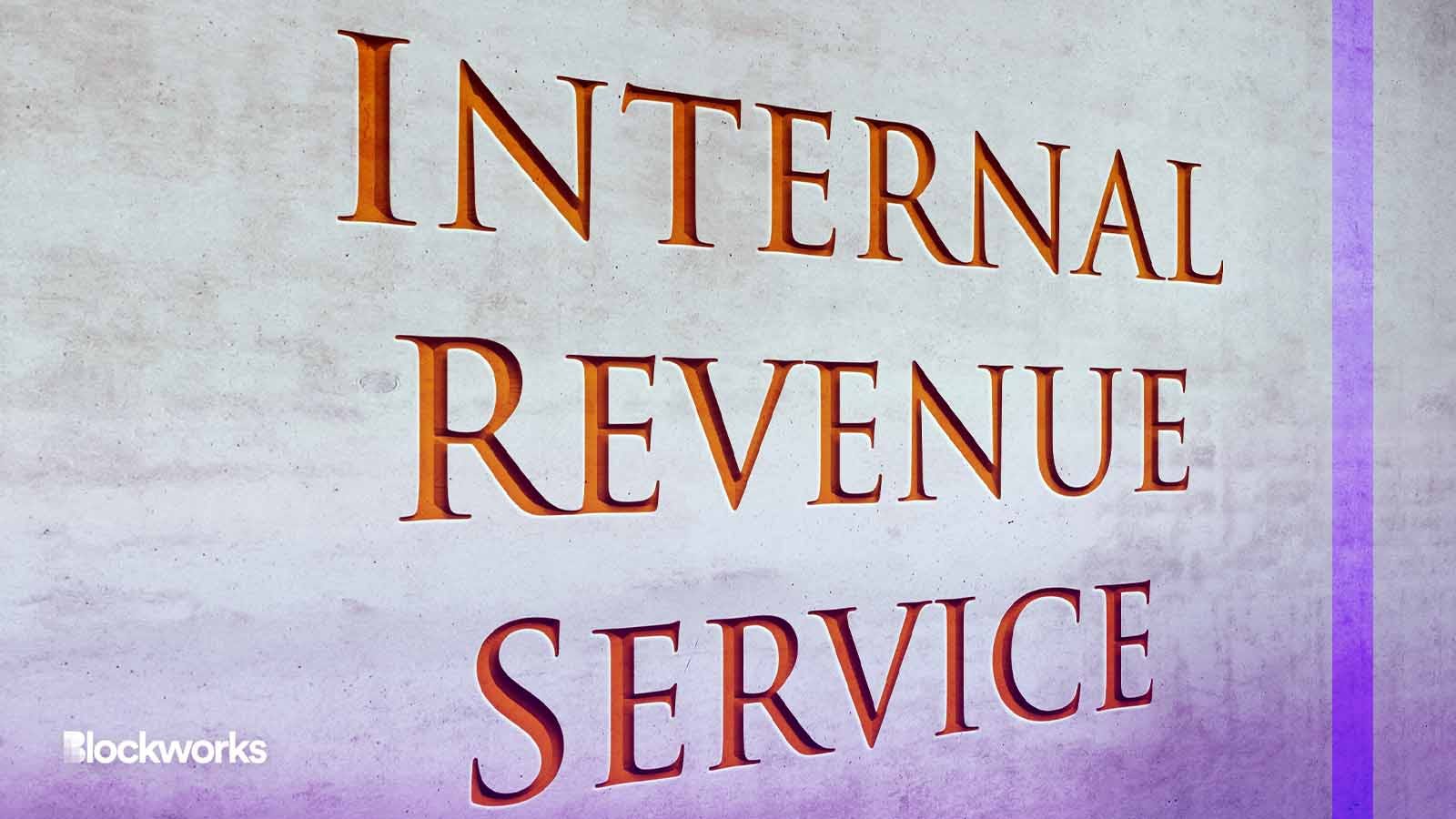IRS spares crypto miners and validators in new broker reporting requirements
Individuals who only engage in distributed ledger validation, including miners and stakers, are exempt from broker requirements, Treasury officials said

Castleski/Shutterstock modified by Blockworks
The US Treasury Department has released its highly-anticipated proposed regulations for cryptocurrency brokers. Notably, it has chosen to exempt individual validators and miners.
The Treasury alongside the Internal Revenue Service introduced the proposed regulations on Friday as stipulated by the 2021 Infrastructure Investment and Jobs Act. The agencies suggest defining digital asset “brokers” as “trading platforms, digital asset payment processors, certain digital asset hosted wallet providers, and persons who regularly offer to redeem digital assets that were created or issued by that person.”
Individuals who only engage in distributed ledger validation, including miners and stakers, are exempt from broker requirements, Treasury officials told members of the press.
Under the proposed rules, crypto brokers will have to adhere to the same rules as securities brokers, including filing information returns and furnishing payee statements for all customers and traders.
The Treasury is also calling for brokers to provide a new Form 1099-DA, a special form for reporting non-employment income from digital assets, to all customers and clients, in an effort to help taxpayers manage their tax obligations.
The Treasury stated that the proposed changes aim to curb crypto tax evasion and prevent crypto investors and businesses from gaining an unfair advantage. The Biden Administration has said there is as much as $18 billion left on the table from crypto investors taking advantage of “loopholes” in the tax code.
The proposed rules come about four months before the agency’s Dec. 31, 2023 deadline to submit, as mandated by Congress.
Earlier this month, a group of Democratic senators urged the two agencies to pick up the pace, arguing that the Treasury and IRS “are at risk of failing to meet their congressionally-mandated deadlines for implementation of a final rule,” per the letter signed by Sen. Elizabeth Warren, D-Mass., and others.
The rules, if passed, would go into effect in 2026, for the 2025 tax year.
The public comment period for the proposed rules is open until Oct. 30, 2023. A public hearing has been scheduled for Nov. 7, 2023, and if needed will extend to Nov. 8 to accommodate additional requests to speak. The deadline to request to speak at the hearing is Oct. 30.
Get the news in your inbox. Explore Blockworks newsletters:
- The Breakdown: Decoding crypto and the markets. Daily.
- 0xResearch: Alpha in your inbox. Think like an analyst.






